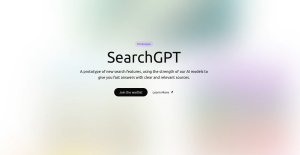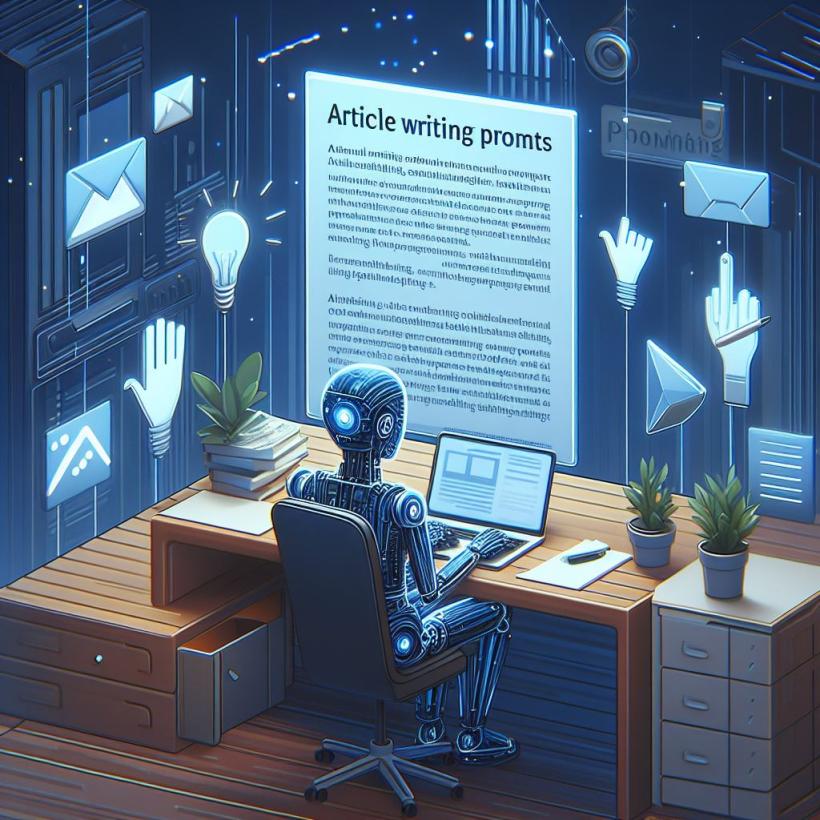The best prompt for article writing
I've been creating content since 2011. During this time, I formed certain criteria for a quality articles, on the basis of which I created a technical specification for the authors.
The problem with authors is that they have different background, some of them are educated, some are not, some may have experience, some not, etc. So my task, as a hirer is to explain and train them.
When writing text through AI, you need to consider it as an author, which has to be trained as well.
In addition to the task itself, it is necessary to provide instructions, thanks to which the text can become better, more readable and interesting.
What is a good article
There are just few key points.
What can be taught to AI:
- Accuracy and facts - in most cases AI will not write 100% accurate facts. So your first task will be to gather all important information. You may collect everything you need in a text format, or if your AI service is capable - give it a list of links with some important data.
- Text formatting - basically paragraphs, listings, bold text and so on.
What is harder to teach AI:
- Personal experience - this is what any AI lacks, obviously, so you will need to add it yourself.
- Style - is the answer to everything ))) In terms of article, style is a combination of multiple factors, it is a way an author expresses ideas. It includes: tone, voice, sentence structure, pacing, syntax, figurative language, formality and point of view expression. As you can see, it is probably one of the most difficult aspect, because style comes with experience and you cannot just tell anyone to write stylish article.
And most important - good article don't waste your time while reading and you don't want to return to search.
Steps to create an outstanding article with AI
- Create detailed instructions: what the article will be about, who the target audience is, how to write, style, design, what can and cannot be used in the article, etc.
- Collect data: you need up to date facts. Nearly all neural networks are trained on historical data. And that data is not collected evenly. There is a high probability that their knowledge about your topic is two years old or has gaps.
- Life hacks:
- In addition to text data, you can collect transcriptions of videos on the topic. More on this later.
- Ask the neural network what other information it needs to write a good article.
- Create an article structure based on the top search results. Look at what the competitors are writing about and how. Create your own version of the structure, taking the best from them.
- Feed all the data and structure to the AI chat, but ask it not to write anything yet. Let it digest the information first.
- And now the most important thing: you must write the article in parts! Each section separately. Once one is written, if there is nothing you want to change, you can move on to the next. This is the only way to achieve good quality.
Why you should write in chunks, not all at once?
Each AI has a certain limit on the number of characters in an answer. If you try to write the entire article in one reply, it will turn out to be an oversimplified version of what it could have been.
When processing a large input, a soulless machine can become confused or start hallucinating. It is much easier to focus on a subtopic than to try to write everything at once.
Prompt - main instruction
When you work with people - you need to compose a task, set the rules, define the output you want to see.
The better those instructions are - the better results you will get.
The same is for AI.
Don't underestimate their capabilities, but you have to be precise in the task explanation.
Example prompt:
You are an experienced expert in *INSERT GENERAL TOPIC*. The task is to write an informational article on the topic *INSERT ARTICLE TOPIC*.
Audience:
- *Insert and describe your audience: gender, age, experience in the niche (writing for beginners or professionals), level of knowledge, education, etc.Article goal:
- *Describe the goals you are pursuing.
- *For example, the goal may be to introduce the reader to a product or service, show the strengths and weaknesses of something, compare with something, write a guide about something, etc.Format, style and design:
- The text of the article must be written in Russian.
- Stick to an informational style.
- Text formatting should help perception, the text should be easy to read.
- Send the body of the article in HTML format inside the Code block so that you can easily copy the content.
- Allowed tags: <h2>, <h3>, <h4>, <p>, <b>, <strong>, <i>, <u>, <ul>, <ol>, <li>, <blockquote>.
- Do not use <html>, <body> and other basic HTML document tags.
- If you need a table, use only <table class="table"> and standard tags <thead>, <tbody>, <tr>, <td>, <th>.
- Number of lists: no more than 2 (<ul> or <ol>) for the entire article.
- Bold highlighting (<b> or <strong>): maximum one highlighting per paragraph or list. Do not bold everything.Writing rules:
- Important: each section of the article must be written separately and sent to the user. Only after confirmation that everything is okay - you can start writing the next section of the article.
- The article must be informative, with in-depth study of each section.
- Each word or phrase should be used to communicate an important fact to the reader.
- Follow the structure of the article consistently when writing (the structure will be provided in a separate message).
- Each section (between headings) should not have 1-2 sentences. Write more extensively, deeply and in detail, but without "water".
- Information should be concentrated and useful.
- Do not create additional subheadings unless explicitly stated.
- Write all the details very clearly and step by step.
- Do not repeat information written in another section of the article.
- Each section should reveal its own mini-topic.
- Sections can be logically connected and refer to each other, but without obvious repetitions.
Important: ask AI not to write anything yet.
Collect data
Parse or manually collect data.
Data includes various technical characteristics, numbers, statistics, and other information that you can use to write an article.
This is an important part of writing an article. Do not rely on the AI's knowledge base - it may be outdated, or the mega-brain may not retrieve exactly what you need from its mind chambers.
Data Sources:
- Informational sites,
- Wikipedia,
- Online stores,
- Review sites,
- Youtube video transcriptions,
- etc...
How to quickly get a video transcription
- Find the video you want, it should have subtitles (manual or automatic, it doesn't matter).
- Go to - https://notegpt.io/youtube-video-summarizer -
- Paste link to the video there (the tool is free).
- You will get the raw transcript. Go to AI chatbot and ask to make a short summary, including all the important points of the video, be sure to collect facts and the author's opinion, if it was voiced.
- Profit. Now you have an extract of useful information.
YouTube is an invaluable source of information. Experts in various industries are commenting their topics all the time. Select the most relevant videos.
Article structure
The structure consists of subheadings and their explanations.
Remember the rule that H1 is always one, so our structure will contain only H2, H3, maximum H4.
The simpler the better, there is no need to create a complex structure with deep nesting levels of headings, for most articles a flat structure is sufficient.
How to do it:
- Collect articles you like.
- Write down all of their subheadings.
- Based on that list create your own structure. Try to be include enough heading to cover the topic completely, but it has to be just enough. Do not just mix everything, think about what your users will want to see in the article.
Structure sample
Introduction
- A short introductory text describing what the article will be about
- No subheadings needed hereH2 - Subheading
- *Description of the section, what should be hereH2 - Subheading two
- *You can specify features, for example:
- *Insert a table with three columns: column title 1, title 2, title 3.
- *Fill in the table based on the data provided earlier.H2 - Subheading three
- *DescriptionH3 - Subheading four
- *DescriptionH2 - Subheading five
- *Description
How to set a tone and style to the article
You can train AI to mimic some author. In that case add to your prompt:
Look through these articles: [list of links to articles]
Analyze tone, structure, diction, pacing, sentence structure, figurative language, formality, point of view and author's personal experience. Write new article in the same style.
Best practice tips and tricks
- The article must be checked by an expert in the niche.
- Use formatting to make the text easier to perceive and read. This includes dividing into paragraphs, lists, subsections, and various highlights.
- Pictures, tables, infographics, quotes - they add a lot of flavor and "life" to an article.
- A paid subscription is a good idea because it allows you to use more advanced models.
- Everything can be done within a basic chat, but it would be better to train your custom GPT.
- Custom GPT can work with API - if you have a reliable data source that can be queried via API, ChatGPT can do this and automatically retrieve relevant information.
- The advanced o1 model writes better than the 4o, but the advanced one has very few limits, even with a paid subscription, so you need to use it sparingly and wisely.
- New Chinese AIs (DeepSeek, Qwen) have created a lot of hype, but after testing them I was convinced that the results are still noticeably worse than those of OpenAI. They do well in some simple questions, but when it comes to writing an article, they start to get dumb, forget instructions, make a lot of repetitions in the text, etc.






